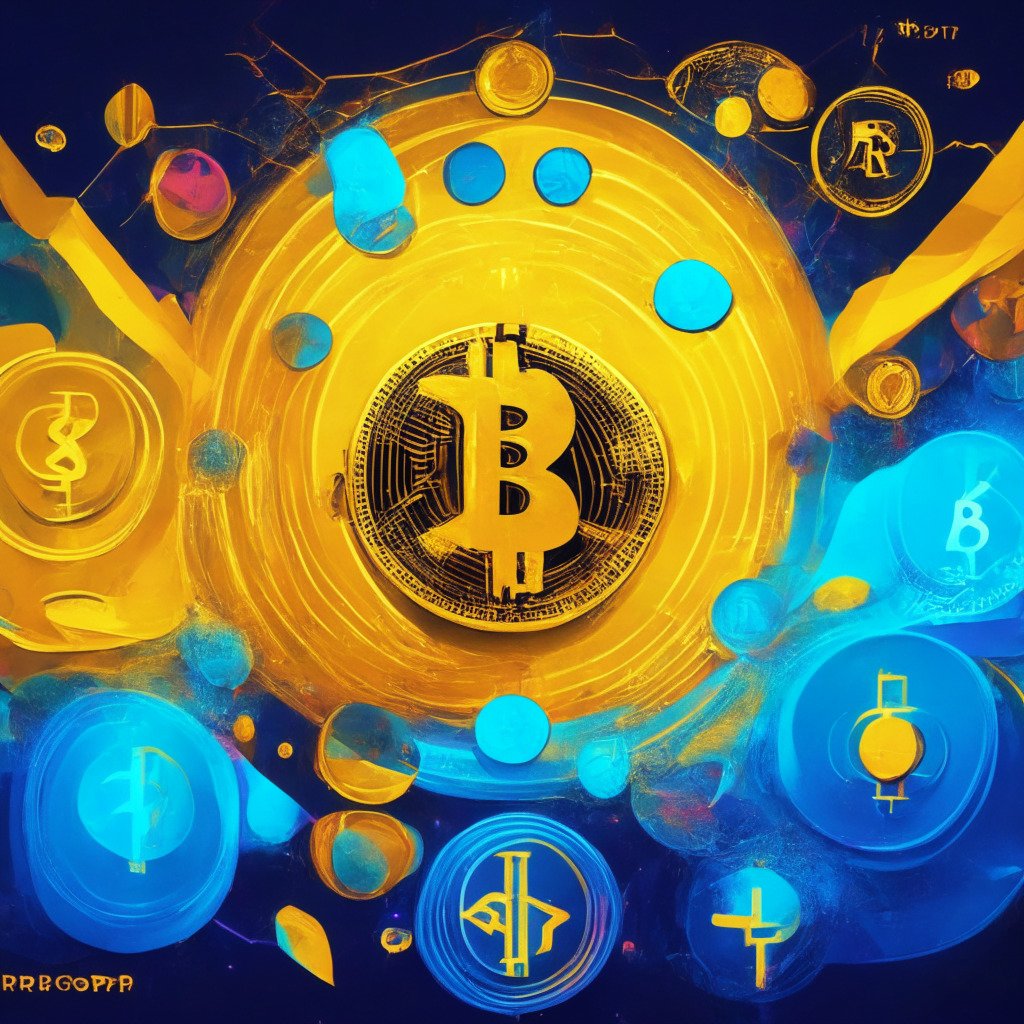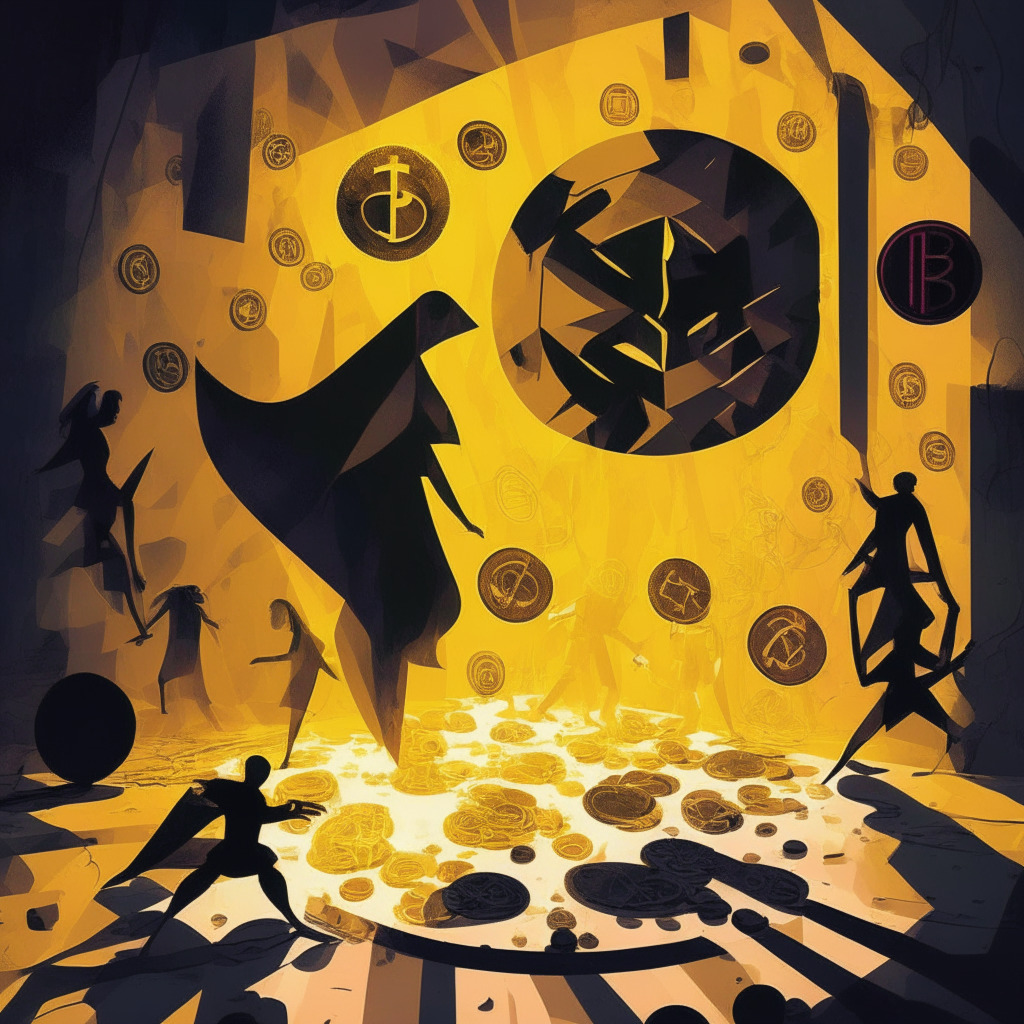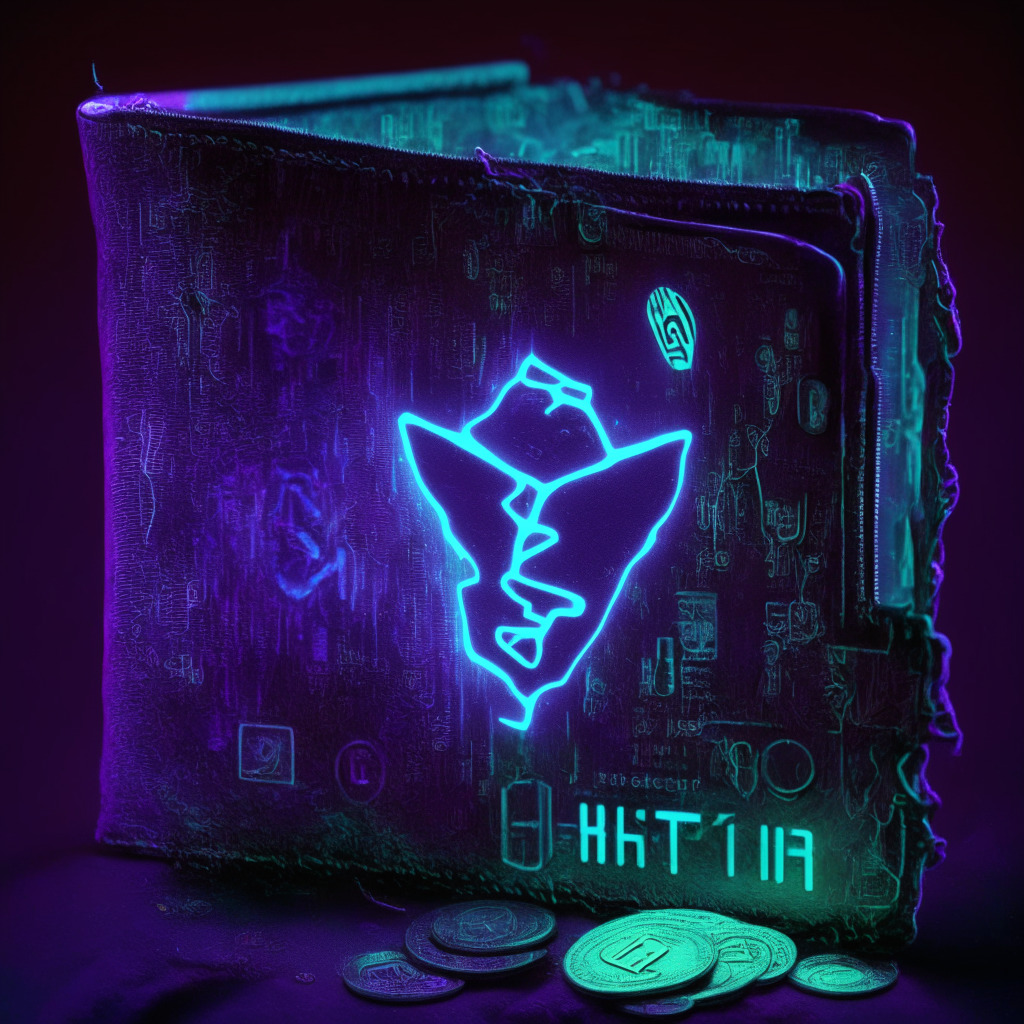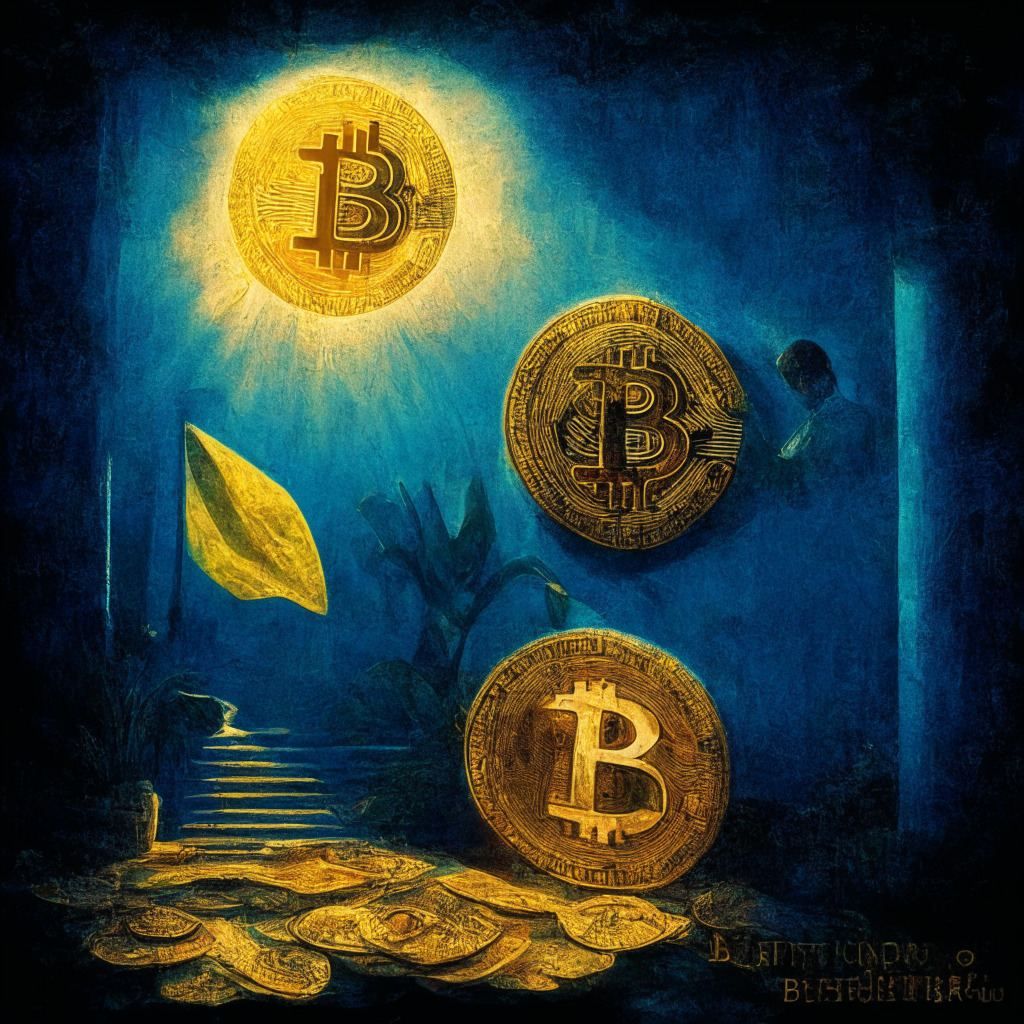GameStop has announced a strategic partnership with The Telos Foundation to boost its Web3 gaming offerings by integrating Web3 games built on Telos’ robust blockchain network with its upcoming game launchpad, Playr. This collaboration aims to eliminate barriers, making it more accessible for Web2 players to explore Web3 gaming while attracting new users to the emerging ecosystem.
Search Results for: Wall
AB de Villiers’ NFT Hack: A Cautionary Tale in the World of Web3
South African cricket legend AB de Villiers fell victim to an NFT hack, losing a significant portion of his 300 digital collectibles. Despite the security breach, de Villiers remains an advocate for cryptocurrency, engaging in various digital asset projects like Bored Ape NFTs, Neo Tokyo, and Impostors.
BRC-20 vs. DRC-20 Tokens: Key Differences, Potential, and Future Impact in Crypto
The crypto landscape has introduced various token standards, such as BTC-20 and DRC-20 tokens. Key differences between them include blockchain platforms, liquidity, smart contract compatibility, transaction speed, and security. DRC-20 tokens show potential in the Dogecoin ecosystem, enabling creation of unique digital assets.
XRP’s Bullish Outlook Amid Ripple-SEC Case: Pros, Cons, and the Rise of Meme Tokens
XRP’s value of $0.506955 exhibits a 12.5% gain over the past week, fueled by positive sentiment regarding the Ripple-SEC case. Strong support levels and acquisitions like Metaco and a CBDC platform reflect Ripple’s confidence. However, outcome uncertainty leads investors to consider promising altcoins, such as Wall Street Memes (WSM) with its $2.2 million presale and growing community.
2023 Crypto Cycle: Chinese Narrative, Altcoin Surges, and the Quest for Sustainable Investments
The 2023 crypto cycle has seen captivating narratives like the bullish ‘Chinese narrative’, which has […]
Pepe Coin’s Uncertain Future: Potential Rebound or Continuous Decline?
Pepe Coin price gained 1% in the past 24 hours despite recent declines, with some indicators pointing to renewed growth potential. However, it remains a meme token lacking practical utility. Alternatives like presale tokens, such as ECOTERRA, provide similar opportunities for potential gains.
Crypto Crowdfunding for Nothing: Brilliant Art or Manipulative Ploy?
Anonymous co-founder of NFT marketplace NotLarvaLabs, Pauly, raised over $1.1 million in Ethereum with a spoof campaign offering no rewards. The initiative sparked debate on the ethics of such fundraising, the power of social media influence, and the importance of establishing guidelines for the evolving cryptocurrency landscape.
Top Crypto Communities to Watch in 2023: Benefits, Risks, and Finding Balance
The crypto market’s unprecedented growth has led to dedicated crypto communities on platforms like Discord, Reddit, Twitter, and Telegram. These communities offer valuable insights, advice, and discussions for like-minded individuals, helping them make informed investment decisions while navigating the ever-evolving digital currency ecosystem.
The Fall of Alameda Research: Analyzing $110M in Recovered BTC and Potential Hidden Funds
Liquidators hold over $110 million in BTC from the disgraced Alameda Research hedge fund, founded by Sam Bankman-Fried. The firm may still hold additional BTC in centralized exchanges or unlinked cold wallets. As Alameda’s downfall serves as a reminder, crypto enthusiasts should exercise caution and conduct thorough market research before investing.
Japanese Stablecoins: Navigating New Payment Services Act, Pros and Cons
The revision of the Payment Services Act allows Japanese firms to issue stablecoins, aiming to improve efficiency in cross-border payments, international remittance, and online shopping. The legislation also bolsters anti-money laundering efforts and differentiates between crypto assets and stablecoins. This development could significantly impact the $7.2 billion B2B payments market and foster innovation in financial institutions.
The Dark Side of NFT Influencers: Responsibility, Scams, and Trust in Web3 Community
Social media influencers in the NFT space hold significant responsibility as their actions influence their audience’s decisions on buying or selling NFTs. This becomes problematic when they unintentionally promote scams, such as the recent Pixel Penguins NFT collection, raising questions about their role as trusted thought leaders in the crypto and NFT community.
Crypto Founders’ Gain or Pain? Unpacking PulseChain’s Rocky Launch and Bizarro Crypto World
PulseChain and PulseX, virtual replicas of Ethereum and Uniswap, face multiple issues post-launch, including high fees and injurious bugs. Critics have warned that copying Ethereum’s state could lead to problems. The shaky launch is a reminder for investors to tread cautiously in the crypto realm.
Bitcoin’s First Monthly Loss of 2023: Analyzing the Whales’ Impact and Market Uncertainty
As Bitcoin faces its first monthly loss in 2023, market uncertainty increases with whales moving nearly 16,000 BTC across exchanges. This could impact the market adversely, and amid economic issues, investors should be cautious and conduct proper research before venturing into cryptocurrency investments.
Cryptocurrency, Fentanyl Trade, and Balancing Regulation: An In-Depth Analysis
Senator Elizabeth Warren highlights the connection between cryptocurrency and the Chinese fentanyl trade, proposing the Digital Asset Anti-Money Laundering Act to halt such transactions. Striking a balance between security and innovation is crucial in regulating the blockchain and digital asset sector.
Cricket Legend AB de Villiers Dives into Crypto, NFTs, and Web3 Investment Platform
Cricket legend AB de Villiers shares his journey into Web3 and cryptocurrencies, highlighting his experience with NFTs and becoming an ambassador for Ethereum-based investment platform, Common Wealth. He emphasizes the importance of simplifying processes for newcomers and cautiously investing in the volatile crypto market.
Eco-Friendly DeFi: Mooky’s Mission to Benefit Investors, Charities, and Environment
Community-driven cryptocurrency project Mooky aims to reward investors while supporting the environment and charities through its native token, $MOOK. The Mooky ecosystem includes unique NFTs connected to real-life trees, a Ventures Club DAO, and a 0% tax rate on token transactions.
Building the Web3 Metropolis: Challenges, Solutions, and the Path to a Decentralized Future
The Web3 industry envisions a decentralized, user-centric internet, but struggles to deliver engaging consumer experiences. Public blockchains offer interoperability and peer-to-peer networks, but Web3 must develop a responsive data layer for advanced applications and prioritize enjoyable interactions to attract true residents and realize the virtual metropolis vision.
Ecoterra: Merging Blockchain Technology and Sustainability in the Crypto Market
Ecoterra’s innovative Recycle-to-Earn (R2E) system utilizes blockchain technology to reward users for responsible recycling actions. Major companies like Coca-Cola, Carlsberg, and Evian are collaborating with Ecoterra, acknowledging the potential of this environmentally responsible solution powered by cryptocurrency.
Mass Crypto Adoption: Analyzing Magic’s $52M Funding and Balancing Privacy Concerns
Crypto wallet-as-a-service provider Magic secured $52 million in funding led by PayPal Ventures, aiming to expand functionality and promote Web3 technologies adoption. Magic’s platform simplifies wallet creation for businesses and end-users, but user data privacy and security remain crucial concerns to address.
Social Media Influencers Receive ETH for Nothing: Publicity Stunt or Money Laundering?
A recent trend on Twitter involves influencers asking for Ethereum (ETH) in exchange for nothing, raising questions about publicity stunts or potential money laundering. One wallet address received over $1 million worth of ETH in 24 hours. The trend underscores potential risks within the evolving cryptocurrency space, emphasizing the necessity for investor diligence and education.
Binance CEO on Lightning Network, Mining, and Global Crypto Regulations
Binance CEO Changpeng “CZ” Zhao discusses the importance of Lightning Network integration for crypto exchanges, mining operations, regulatory challenges, and the need for investors to research before investing in meme coins, NFTs, or metaverse projects. Favorable crypto regulations cited in UAE and Hong Kong.
Trust Reserve Arrest in China: CBDC Suppression or Necessary Regulation?
The recent arrest of Trust Reserve team in China, the company behind two stablecoins backed by CNY and HKD, has stirred the crypto community. This event, which might be linked to China’s CBDC crackdown, highlights the importance of e-CNY and raises questions on China’s cryptocurrency regulation approach.
XRP Rally Amid SEC Case: Prospects, Risks, and Alternative Investment Options
XRP price gains by 1% amidst market-wide decline, signifying an 11% increase in the past week with expectations of a positive verdict in Ripple’s SEC case. Ripple’s recent Metaco acquisition and growing market confidence may lead to a massive rally, while diversifying with alternatives like Wall Street Memes could maximize gains.
WSM Token Presale: Transforming Meme Coin World and Captivating Retail Investors
Wall Street Memes ($WSM) token presale is disrupting the crypto industry, drawing inspiration from the Wall Street Bets movement and top NFT projects. Surpassing $1.3 million in a week, the community’s size almost guarantees listings on top-tier crypto exchanges, potentially redefining power dynamics in digital value markets.
Navigating Crypto Amid Federal Reserve’s Liquidity Tightening and Debt Ceiling Debates
Crypto enthusiasts should note Cleveland Fed President Loretta Mester’s support for liquidity tightening and consistent interest rate policy, as her comments impacted Bitcoin’s value. The market’s response demonstrates the significance of global economic events and Federal Reserve policy decisions on the cryptocurrency landscape.
Cryptocurrency Debate in Russia: Central Bank’s Ban vs Finance Ministry’s Regulation Approach
In Russia, cryptocurrencies are considered too risky for most but suitable for professional investors, according to Ivan Chebeskov, director of the financial policy department at the Finance Ministry. While acknowledging the high-risk nature of cryptocurrencies, Chebeskov emphasized their potential for investment. Tensions arise between the Central Bank’s focus on banning cryptocurrencies and the Finance Ministry’s push for regulation and taxation, resulting in an uncertain future for Russia’s crypto market.
Balancing Blockchain Anonymity and Legal Investigations: Pros, Cons & Conflicts
Researchers from Friedrich-Alexander-Universität Erlangen-Nürnberg propose a standard framework containing five argumentative schemes for validating deanonymized data on the Bitcoin blockchain. This aims to balance protecting suspects’ rights and aiding investigators by providing transparent, analytically sound court proceedings and ensuring fair law application. The findings are potentially applicable beyond German and United States legal systems.
CFTC Advisory on Digital Assets: Balancing Innovation and Compliance in Blockchain Future
The CFTC issued a staff advisory to derivatives clearing organizations, emphasizing compliance in areas related to digital assets: system safeguards, conflicts of interest, and physical deliveries. These concerns highlight the balance between fostering innovation in the digital asset space, and protecting investors and businesses. Regulators’ efforts contribute to a more secure and sustainable ecosystem for digital assets.
US Debt Ceiling Chaos Spurs Diversification into Cryptos: Analyzing WSM, QNT, and More
Amid uncertainty over the US debt ceiling, market participants explore diversification into cryptocurrencies such as WSM, QNT, ECOTERRA, INJ, YPRED, LDO, and DLANCE. Enthusiasts consider the environmentally-focused web3 initiative, Ecoterra, an integral part of the global climate change strategy.
Texas Bill Stalling: Implications for Bitcoin Mining and Grid System Sustainability
The Texas SB 1751 bill, aimed at restricting bitcoin miners’ participation in cost-saving grid programs and abolishing tax abatements, has stalled in the state House of Representatives. The stagnation leaves the future uncertain for the burgeoning mining industry in Texas, opening possibilities for further discussions and decision-making regarding the cryptocurrency mining landscape.
El Salvador’s Bitcoin Experiment: A Landmark Move or Destined to Fade Away?
El Salvador made history by adopting Bitcoin as legal tender, aiming to mitigate negative impacts of being tied to the U.S. central bank. Facing challenges like skepticism and fluctuating prices, the country’s Bitcoin experiment has inspired others but leaves its future undetermined.
Ledger’s Recover Service: Securing Crypto Self-Custody or Compromising Privacy?
Ledger introduces “Recover”, a product for easier self-custody without compromising security by associating crypto wallets with ID documents. However, concerns over security and privacy have led to backlash, prompting Ledger to speed up their open-sourcing roadmap for increased verifiability.































